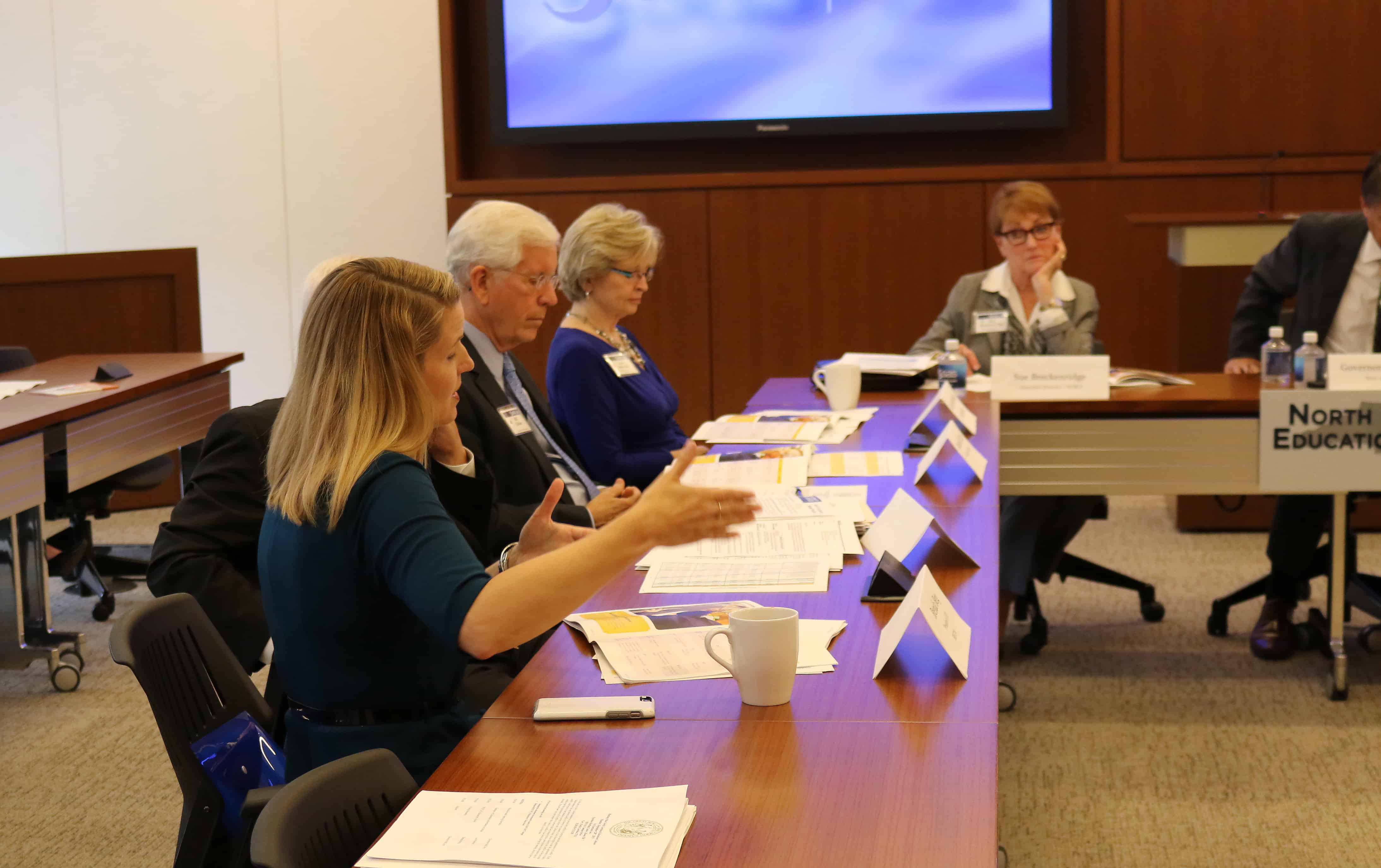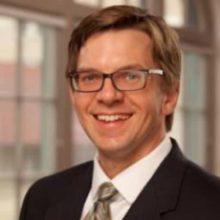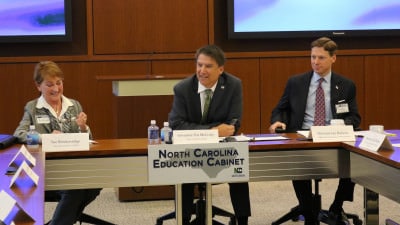“Everyone should have access to the best of the best in education.”
– Governor Pat McCrory
Today at SAS Institute, Brenda Berg of BEST NC presented the Excellence: North Carolina’s Education Vision report, a new collaborative action plan for North Carolina education, policy, business, and community leaders to improve education in the state to the Governor’s Education Cabinet.
It was the first part of a day-long unpacking of the report at the Cary headquarters of SAS. Following the Governor’s Cabinet meeting, the 2015 NC Education Innovation Lab commenced nearby. It was the main event for the rollout of the new strategic visioning, with stakeholders and state leaders hearing from the Governor, Lt. Governor, and education experts from across the state and nation.
“North Carolina has long been a national leader in education, beginning with a constitutional commitment to educate all students in the state,” the report notes. “A core element of that history–and our past academic successes–has been a series of visions for education in North Carolina.”
Facilitated by RTI International (RTI) and BEST NC, the Excellence vision was designed with input from more than 400 education stakeholders and experts from across the state and the nation. Participants produced more than 600 recommendations for improving education in North Carolina. Those recommendations were synthesized with more than a dozen existing strategic plans to produce the final Excellence vision.
“The work of pulling people together is something that is uniquely and importantly a North Carolina way of doing business,” said Berg, in her morning presentation to the Education Cabinet. “We work collaboratively. We have a strong history of education in North Carolina.”
“To pull people together in a collaborative process to set the vision is the way we should do things to move forward,” Berg said.
Berg noted a common theme among the stakeholders the organization worked with to create the vision over the past year was the belief that the state was uniquely positioned to have the best education system in the nation. Those stakeholders represent a broad spectrum of public and private interests.
“The business community is stepping up and saying, ‘We want to be a part of this conversation,'” said Berg.
Here is Berg’s presentation to the Governor’s Education Cabinet:
Governor Pat McCrory touched on four issues in his opening remarks at the 2015 Education Innovation Lab: teamwork, technology, infrastructure, and communications.
“We have to have continued teamwork” between the private sector and the education community, McCrory said. “If we stay in our silos, we won’t understand each others problems.”
McCrory said technology will allow the state to break through barriers of urban and rural, rich and poor, and black and white. “Technology is I think going to be the great equalizer in bringing people together and having education opportunity regardless of where they live, work, or what their economic circumstance is,” he said.
Regarding infrastructure, McCrory asked, “How are we going to get the best students when we don’t have the best facilities?”
And the Governor stressed the importance of communications. He concluded, “there is no excuse for turf.”
Here are Governor McCrory’s opening remarks at the 2015 NC Education Innovation Lab:
Lt. Governor Dan Forest said, “We are constructively discontent with the state of education in North Carolina.” He noted that the disruptive change prevalent in many sectors is often absent from our education system.
“We just want to do what’s best for our kids,” he said, referencing the work of those attending the innovation lab.
Forest framed his remarks with five “bests.” First, the challenge for North Carolina to have the best education system in the world, he said. Forest noted the need to address “educational incivility” to meet that challenge.
Second, Forest identified the creation of the best platform to solve the problems of education with a focus on student success and outputs.
Third, Forest noted that this is the best time for transformation because technology is both ubiquitous and affordable. “We are going to be the first state in the nation to have every single classroom connected to high speed broadband and have 1:1 devices in the hands of our students,” he said.
Fourth, North Carolina is the best place to live because we have the best people, Forest said.
And fifth, he said the best team is needed. The Lt. Governor concluded that the transformational change to create the best education system in the world would require risk, innovation, and leadership.
Here are Lt. Governor Dan Forest’s closing remarks at the 2015 NC Education Innovation Lab:
Here is EdNC’s article about the Governor’s Education Cabinet meeting.
Editor’s Note: BEST NC is a supporter of EdNC.



